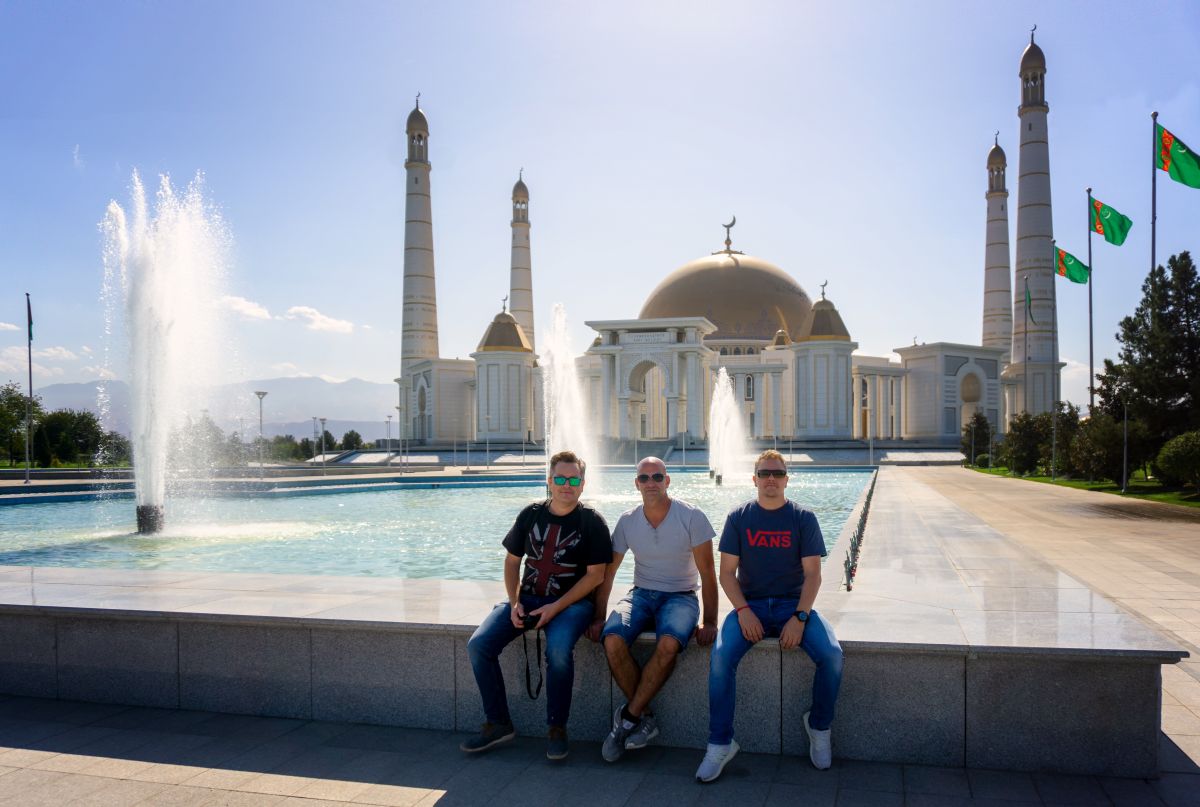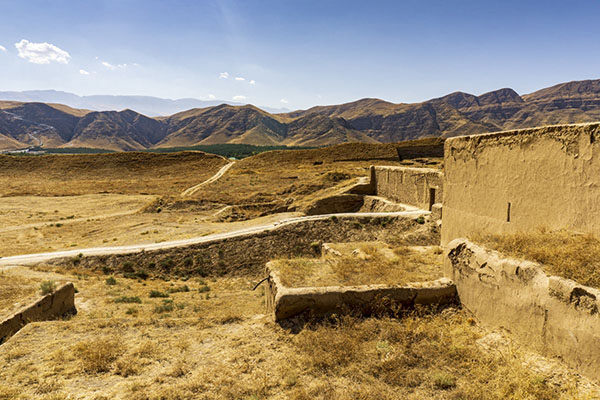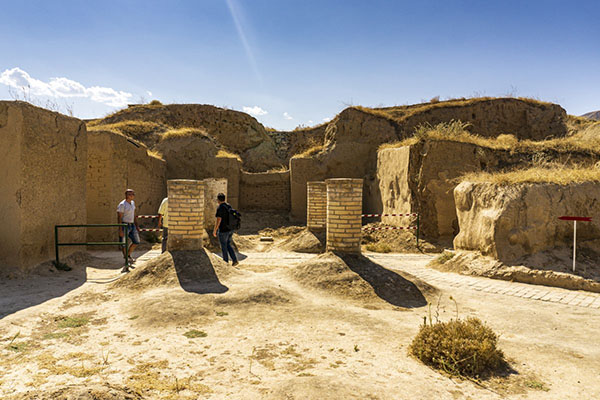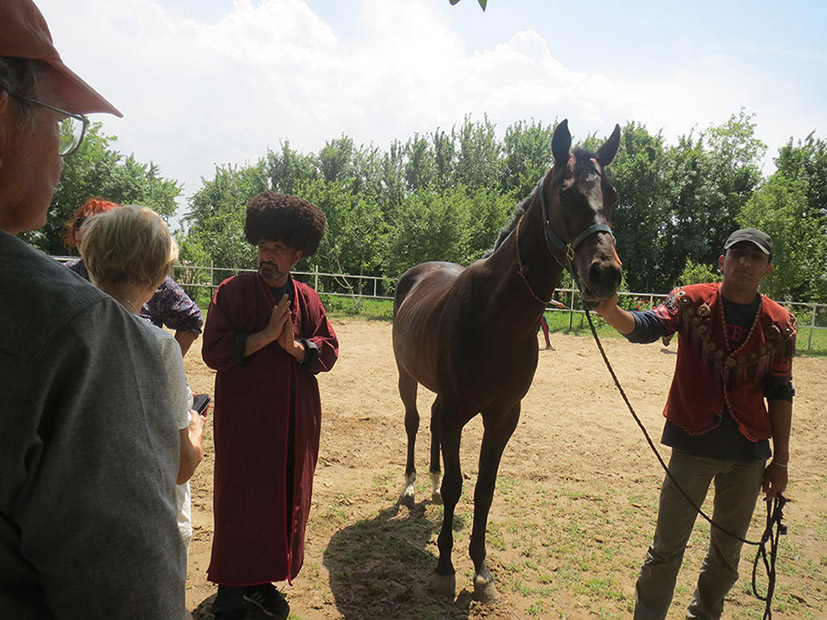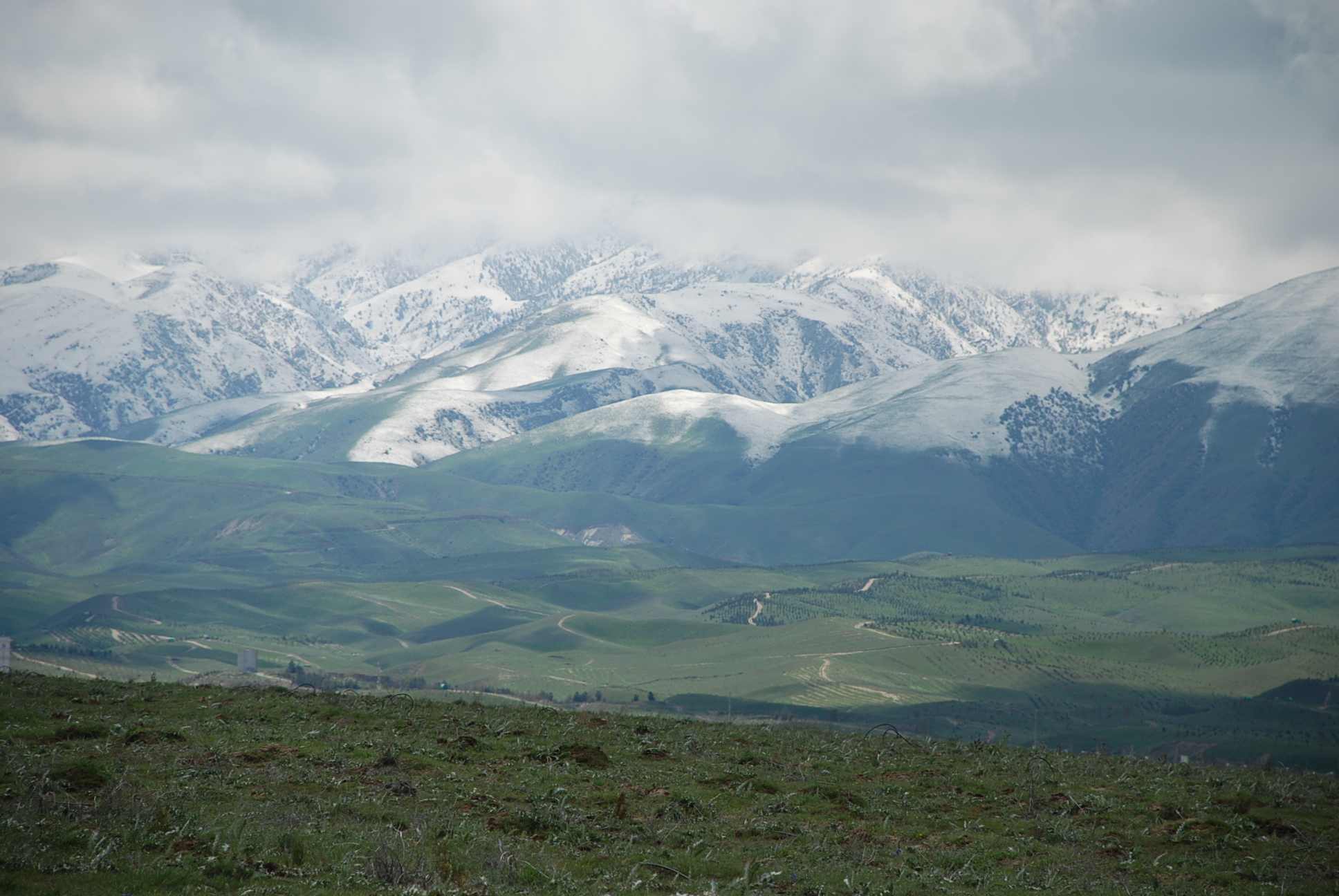Day Excursion: Ashgabat - Old Nisa Fortress - Akhalteke horse farm - KovAta cave with undergound lake - Ashgabat
Short History and Details
Around 280 BCE, Scythian Parni tribe have been forced to move in the Karakum desert. They set up their camps in the desert, to the west from Tejen oasis and entered into Dahae union with other Saka tribes of the desert (Parni, Xanthii, Pissuri). Soon, they took the leadership and using the moment they attacked the wealthy Margiana/Merv. The Seleucids quickly sent an army to neutralize the Parni threat. Seleucid commander Demodamas counterattacked and tampered the expansion capabilities of the Parni for few decades. They waited for another chance and by 248- 247 BCE a new king –Arsaces I, came to lead a resurgent Parni tribe, introducing new empire. First years, he tried again a new invasion of Margiana but understood the unsuccessful campaign against Seleucid satrap of Bactria, Diodotus; he changed the tactics. Andragoras, the governor of Parthia region rebelled in 245 BCE and seceded from Seleucid Empire, and therefore lost their military support to protect its borders. Arsaces I took this opportunity and invaded the Parthia (the ancient region of Persia), the Parthians supported the Parni, by this starting Parthian era in the region. The Parni took control of Astabene (present day Kuchan area) where they founded their first capital – Asaak or Arshak, supposedly Arsaces was crowned there as first Parthian state king. They continued their expansion in Parthia and eliminated Andragoras. Their second capital became – Dara (Dargaz area). Finally, to secure the northern border of their new state, they established third capital in Nisa.
Since 2007, Nisa fortress is on the UNESCO list of World Heritage Sites. UNESCO criteria are that the location of the site is on the crossroads of important commercial and strategic axes of the ancient world. Its archeological remains are the illustration of cultural interaction between Central Asia and Mediterranean world. Nisa belonged to Parthian Empire and symbolized the significance of this imperial power.
Nisa was one of the first strongholds of the young Parthian state in the region. Remained important point at the different stages of Parthian period. Due to the geopolitical development around its borders, it was also a communication center between Parthians and the different nomadic tribes living in the desert and northward zone, for security of its northern borders and the trade routes of Parthian Empire controlled lands.
Nisa is composed of two tells: known as New Nisa – the town itself and Old Nisa – the monumental complex of palaces and temples of Parthian Rulers. Visitors usually see only Old Nisa where all the main archeological expeditions worked since 1960 until present. Today, they unearthed in Old Nisa: Square House known also as Treasury, Northeastern Palace, Square Hall, Round Building – Temple, Tower Building – Temple, Red Building, Southwestern complex and Basins.
New Nisa is also open for visits and you are welcome to see it. The site offers a view of the remains of the curtains of the walls and town citadel, the traces of the urban planning inside of the town.
After Nisa excursion drive to GeokDepe horse farm, 50km. See the farm and get knowledge of Akhalteke horse. Horse riding is separate arrangement
Continue drive to KovAta cave 100km. Come down in the cave and swim in the underground lake
Return to Ashgabat. Stop at Turkmenbashy mosque in Kipchak. Arrive in Ashgabat
Your calculations appear here: USD (total amount per group)
List of services (Selected and Not selected):

